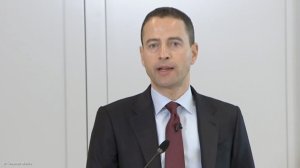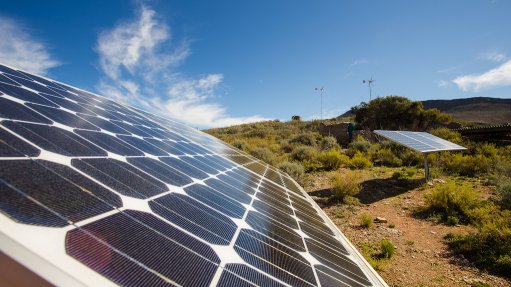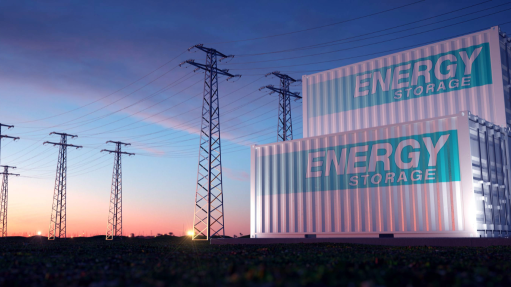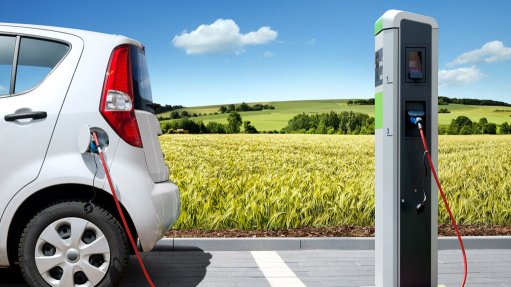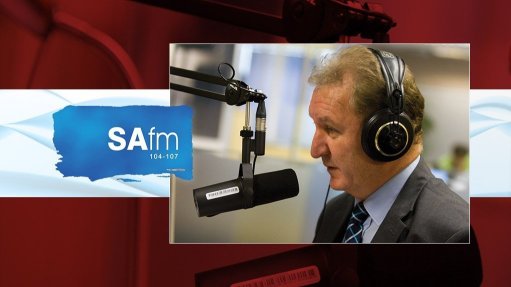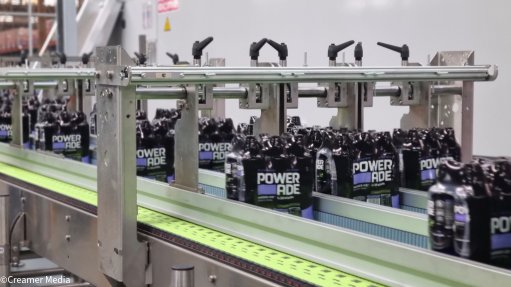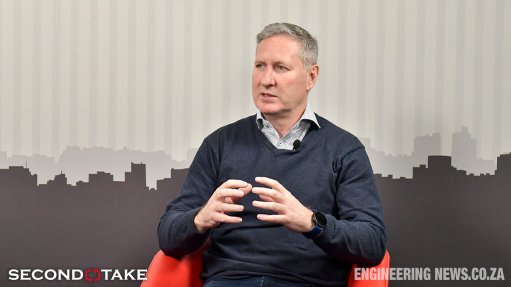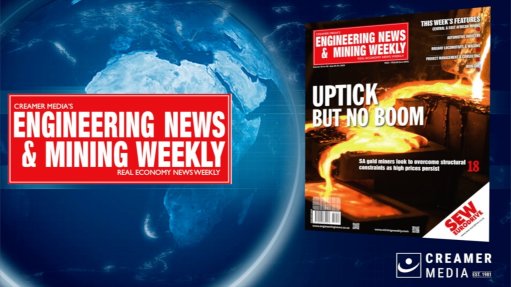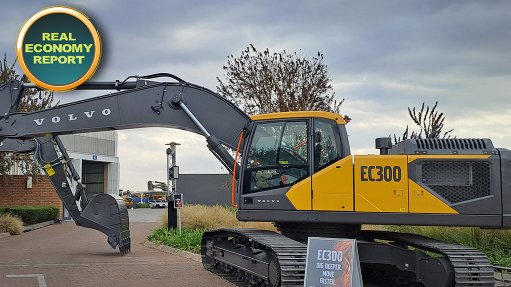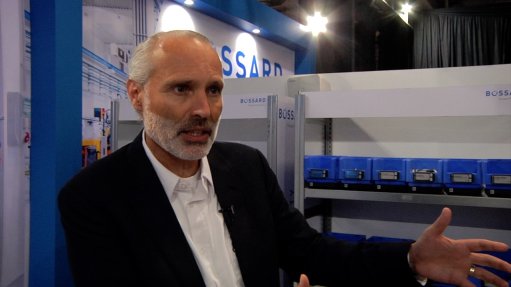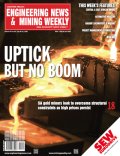Growing need for critical raw materials highlighted by US, EU policies – Glencore

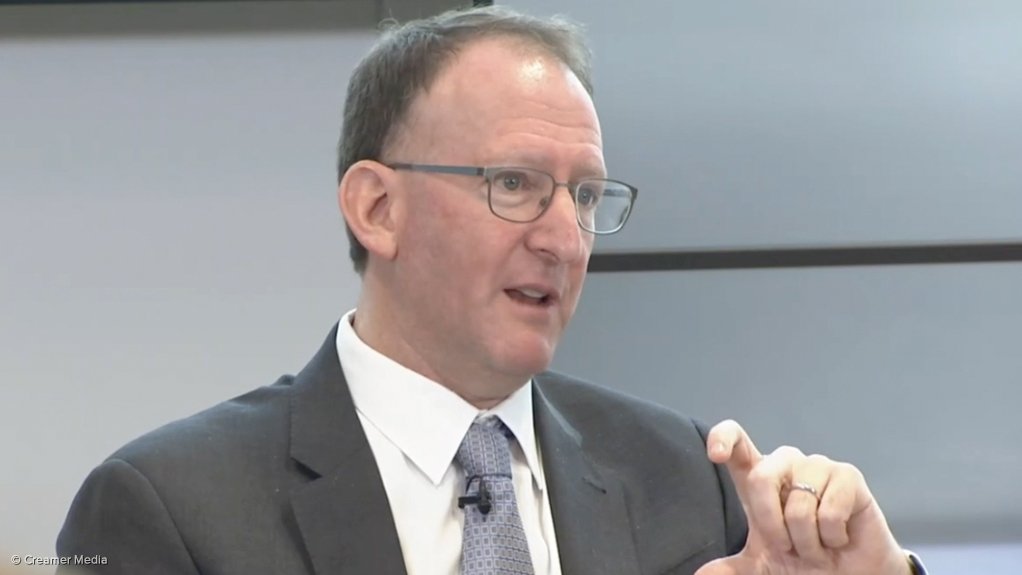
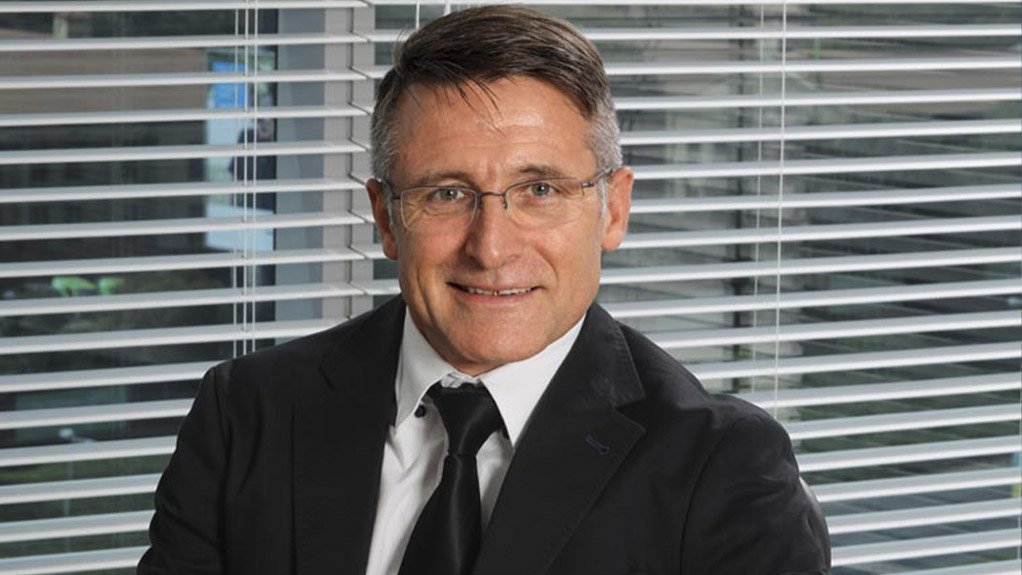
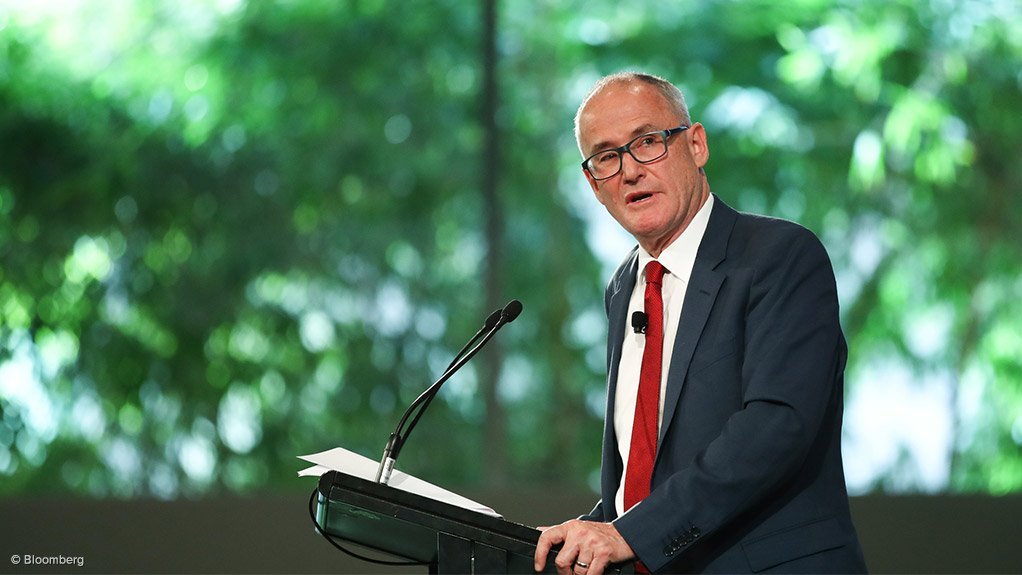
Glencore results covered by Mining Weekly’s Martin Creamer. Video: Darlene Creamer.
Glencore CFO Steve Kalmin.
Photo by Creamer Media
Glencore Alloys head Japie Fullard.
Glencore industrial assets head Peter Freyberg.
JOHANNESBURG (miningweekly.com) – Recent government policies, such as the US's Inflation Reduction Act and the European Union’s proposed Green Deal Industrial Plan, demonstrate the growing need for critical raw materials through to the end of the decade and beyond, necessitating fresh investment in both primary supply and recycling, said Glencore CEO Gary Nagle on Wednesday, when the diversified mining and marketing company reported stunningly high record 2022 earnings.
“As we run down our coal business, we’ll continue to invest in our critical minerals and provide the minerals and metals needed for the decarbonisation of the world’s energy grid. (Also watch attached Creamer Media video.)
“There are significant growth prospects in our copper business in particular, but also potential growth prospects in nickel and cobalt and we’ll bring those materials into the market as the world needs them to decarbonise and supply the minerals of tomorrow, while we supply the energy needed today,” said Nagle.
The London- and Johannesburg-listed company’s earnings before interest, taxes, depreciation and amortisation (Ebitda) were up 60% at $34.1-billion, with net income up 107% at $18.9-billion. Shareholder returns totalled $7.1-billion, or $0.56 a share, Glencore CFO Steve Kalmin reported.
Equity-free cash flow was $24-billion and the year ended with virtual zero net debt.
“It’s been a phenomenal year on the marketing side,” said Nagle, with marketing Ebit double the top end of the guided range.
“We’ve been able to provide our customers with the energy security they need, the minerals they require to be able to navigate a very volatile world,” Nagle added.
Glencore has made considerable climate mitigation progress, with Glencore industrial assets head Peter Freyberg and his team working extensively on what the company refers to as its marginal abatement cost curve (MACC), which reduces Scope 1 and 2 emissions through evaluating operating efficiency, fuel switching, renewable energy and technology options.
MACC provides the framework for Glencore to pursue the most cost-effective reductions and to stay one step ahead of any carbon price. In this way, it intends to decarbonise in a manner that is value accretive or free of charge.
All new mine projects have renewable energy as Glencore embarks on its journey to reduce emissions by 15% by 2026 and by at least 50% by 2035.
A carbon capture, utilisation and storage pilot project is being advanced in Australia amid the International Energy Agency’s standpoint that the world needs all technologies to be able to meet its net zero ambition by 2050.
Continued capital investment is underway into recycling of minerals, which is seen as being profitable as well as a responsible pursuit to close the supply gap and to decarbonise.
Ongoing Swiss and Dutch governance investigations into the company are being met with cooperation, following the resolution of governance investigations in the US, the UK and Brazil.
“We’ve unfortunately lost four of our colleagues this year and this is something that we take incredibly seriously. It is the single most important driver of our company. Peter Freyberg and his team work relentlessly to keep our people safe and we target zero harm in this company. We haven’t achieved that objective, but it is the number one objective that we have in this company, and we will not rest until our people are all safe,” Nagle emphasised during the presentation of results covered by Mining Weekly.
INCREASED UTILISATION OF RENEWABLES
In response to UBS mining research analyst Miles Allsop, Nagle said the company had seen increased utilisation of renewable energy across the whole of Europe.
Glencore Alloys head Japie Fullard, who is driving Glencore’s energy strategy around alloys, said in response to Mining Weekly during a media call, that multiple solutions are being investigated, with Glencore Alloys’ decarbonisation commitments being on-site projects involving potential cogeneration, and off-site virtual power purchase agreement (PPA) pursuits.
The cogeneration opportunity involves turning currently wasted operational offgas into electricity, which is now set to be coupled with on-site renewable energy and off-site virtual power plants.
“We’re at very advanced stages of signing PPAs with two different companies to the tune of about 400 MW of off-site generation,” said Fullard, adding that there are two projects of about 100 MW each and two of about 150 MW.
SOUTH AFRICA’S COAL LINE PROBLEMS
Responding to the challenges being faced on South Africa’s coal line to Richards Bay Coal Terminal, Nagle said everybody needs to put their shoulder to the wheel.
“The real solution, I believe, is a public-private partnership in part where government and State-owned enterprises partner with the industry in some shape or form, where everybody can contribute towards that. What that looks like is obviously subject to discussion, but I think as an element of a partnership rather than a dependent relationship, and there are ideas that the team have around that and we are open and ready to engage through the Minerals Council with the government to try to put something constructive in place,” said Nagle.
On South Africa’s export coal prices being so far below those of Australia’s, he explained that it was largely a quality issue, with Australia’s Newcastle coal quality being very specific, whereas South Africa’s RB1 was of less specific quality.
“There’s not an abundance of Newcastle quality material produced annually and in certain geographies and markets in particular places like Japan, where boilers are built exclusively for that quality coal and sometimes even for a particular mine in Australia, they have to buy that coal.
“Now, when there’s issues on production, like there were last year because of the rains in Australia, that quality coal becomes in higher demand because the market is much tighter, and can’t necessarily buy South African coal to replace, either because of some of the trace elements in the South African material or simply because the boilers are built exclusively for Newcastle material, and if they don’t have Newcastle material, they have issues around variability,” Nagle said.
Regarding the Astron oil refinery in Cape Town being brought back into operation, Nagle said: “We’re producing all the products now.” The nameplate capacity of the refinery is about 100 000 bbl/d. “Of course, you don’t always get to nameplate, but we’re up at about 80 000 bbl/d to 85 000 bbl/d, so we’re pretty much there. There’s one or two areas of the plant that are still being fully commissioned at the moment, but by all intents and purposes, we’re back up at capacity,” he added.
ANALYST COMMENTS
“We reiterate our buy rating,” stated Deutsche Bank Research in a note on Glencore’s 2022 results.
Jefferies equity research analysts described the company as being well positioned for the global decarbonisation movement, owing to its exposure to copper and other energy-transition metals.
Glencore strikes a balanced, positive tone amid economic uncertainty but also China’s reopening, energy security and decarbonisation being structurally positive demand drivers, was the comment of Credit Suisse research team, which also went with a ‘buy’ recommendation for the company that employs 135 000 people, who serve industrial consumers in the automotive, steel, power generation and battery manufacturing while also providing financing, logistics and other services to producers and consumers of commodities.
Comments
Press Office
Announcements
What's On
Subscribe to improve your user experience...
Option 1 (equivalent of R125 a month):
Receive a weekly copy of Creamer Media's Engineering News & Mining Weekly magazine
(print copy for those in South Africa and e-magazine for those outside of South Africa)
Receive daily email newsletters
Access to full search results
Access archive of magazine back copies
Access to Projects in Progress
Access to ONE Research Report of your choice in PDF format
Option 2 (equivalent of R375 a month):
All benefits from Option 1
PLUS
Access to Creamer Media's Research Channel Africa for ALL Research Reports, in PDF format, on various industrial and mining sectors
including Electricity; Water; Energy Transition; Hydrogen; Roads, Rail and Ports; Coal; Gold; Platinum; Battery Metals; etc.
Already a subscriber?
Forgotten your password?
Receive weekly copy of Creamer Media's Engineering News & Mining Weekly magazine (print copy for those in South Africa and e-magazine for those outside of South Africa)
➕
Recieve daily email newsletters
➕
Access to full search results
➕
Access archive of magazine back copies
➕
Access to Projects in Progress
➕
Access to ONE Research Report of your choice in PDF format
RESEARCH CHANNEL AFRICA
R4500 (equivalent of R375 a month)
SUBSCRIBEAll benefits from Option 1
➕
Access to Creamer Media's Research Channel Africa for ALL Research Reports on various industrial and mining sectors, in PDF format, including on:
Electricity
➕
Water
➕
Energy Transition
➕
Hydrogen
➕
Roads, Rail and Ports
➕
Coal
➕
Gold
➕
Platinum
➕
Battery Metals
➕
etc.
Receive all benefits from Option 1 or Option 2 delivered to numerous people at your company
➕
Multiple User names and Passwords for simultaneous log-ins
➕
Intranet integration access to all in your organisation


